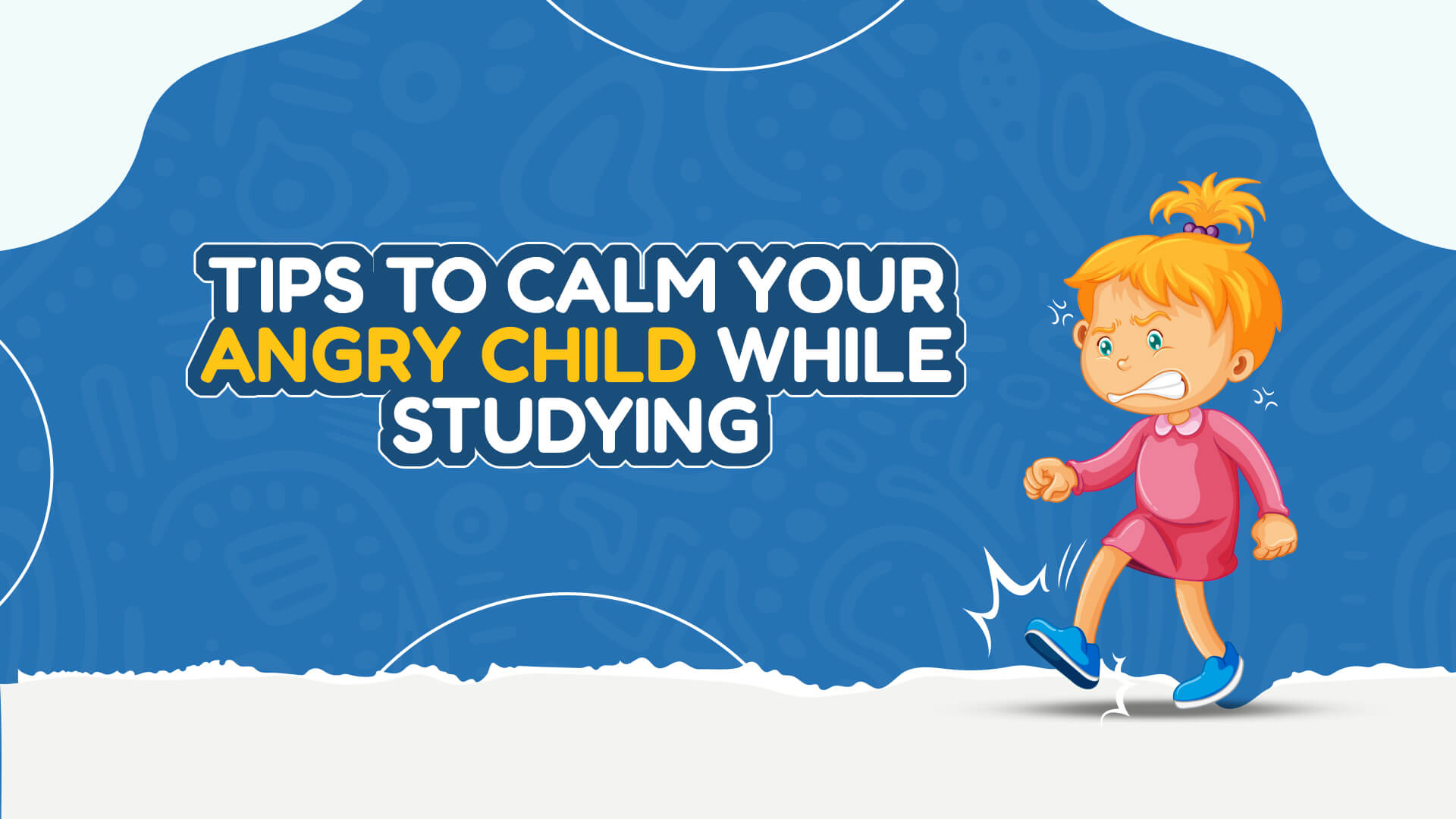Why Is My Child Always Angry When It Comes to Studying? Exploring Solutions and Support




“Education is the most powerful weapon which you can use to change the world." –Nelson Mandela.
But what if that weapon feels more like a burden to your child? You’ve probably noticed that every time you mention studying, your child seems to transform into a mini Hulk—anger, frustration, and all. This behavior is more common than you might think, and it’s not just about disliking homework. Let's look into the reasons behind your child’s study-related anger and explore some practical, and yes, even funny, solutions!
Children can become frustrated or angry when it comes to studying for several reasons.
Here are a few common culprits:
1. Overwhelming Expectations
When kids feel that they must meet high expectations, they might react with anger as a defense mechanism. Imagine you’re told to clean a room the size of a football field—daunting, right? Children feel similarly when faced with heaps of homework.
2. Boredom and Lack of Interest
Let’s be honest—algebra can feel like a foreign language. If your child finds their study material boring, their frustration is understandable. Imagine watching paint dry, but you’re told it’s the most exciting thing ever.
Look at the table below that shows the interest level of students in Subjects
Rank | Subject | Interest Level(%) |
1 | Art and craft | 85% |
2 | Physical Education(PE) | 78% |
3 | Science | 70% |
4 | Mathematics | 62% |
5 | Reading & Literature | 58% |
6 | Social Studies | 55% |
7 | Music | 52% |
8 | Language | 485 |
9 | History | 45% |
3. Learning Challenges
If a child struggles with certain subjects due to learning difficulties like dyslexia, it’s no wonder they get frustrated. It’s like trying to read a book in a pitch-dark room—nearly impossible.
Look at Some of the Common Learning Challenges and Their Impact on Study Behavior
Learning Challenge
| Description | Impact on Study Behaviour |
Attention Deficit Hyperactivity Disorder (ADHD | Difficulty maintaining focus, high activity levels, impulsivity | Shorter study sessions, frequent breaks, and need for engaging materials |
Dyslexia | Difficulty with reading, spelling, and writing due to phonological processing issues | Slow reading pace, challenges in written assignments, reliance on audio materials |
Test Anxiety | Excessive worry about test performance affecting cognitive functions | Difficulty in focusing, impaired memory recall, avoidance of test-related tasks |
Learning Disabilities | Specific difficulties in processing information that can affect one or more academic areas | Struggles with particular subjects, need for individualized support and adaptive strategies
|
Lack of Motivation | Low interest or drive to engage with academic tasks | Procrastination, incomplete assignments, lack of participation in class |
Poor Study Habits | Ineffective methods for organizing and retaining information | Disorganization, inefficient studying, poor retention of material |
Language Barriers | Challenges related to understanding and using the language of instruction | Difficulty in comprehension, slower progress in assignments and tests |
Memory Issues | Problems with recalling information when needed | Difficulty with tests and quizzes, need for frequent review and memorization aids |
Difficulty with Executive Functioning | Problems with planning, organizing, and executing tasks | Challenges in managing time, completing tasks, and prioritizing work |
1. Make Study Time Fun
Turn study time into a game! Use flashcards, educational apps, or even role-playing scenarios. If your child is learning history, pretend you’re time travellers visiting ancient Egypt. Suddenly, that dry textbook comes to life.
2. Set Realistic Expectations:
Work with your child to set achievable goals. Instead of expecting them to study for hours, try shorter, focused sessions with breaks in between.
3. Understand Their Interests:
The table shows that some subjects naturally engage children more than others. Tap into these interests by relating less-preferred subjects to those they enjoy. For example, if your child loves art, try integrating drawing or creative projects into subjects like history or science.
4. Provide Extra Support:
If your child struggles with a particular subject, consider extra support like one-to-one tutoring. This personalized approach can help them gain confidence and reduce frustration.
5. Create a Distraction-Free Zone:
Ensure your child has a quiet, dedicated study space free from distractions. Set specific times for studying and sticking to them can also help.
6.One-on-One Tutoring:
Sometimes, children need personalized attention to overcome academic challenges. One-on-one tutoring can be an effective solution to address your child's specific needs. Platforms like Interval offer tailored tutoring sessions where a tutor can work closely with your child, focusing on areas they find difficult. This personalized approach not only helps in improving academic performance but also boosts your child’s confidence, reducing frustration and anger.
If your child’s anger persists despite trying these strategies, it may be time to seek additional support. Talk to their teacher, a school counselor, or even a child psychologist. Sometimes, underlying issues like anxiety or stress can contribute to their frustration.
Try integrating math into everyday activities, like cooking, where they can measure ingredients, or use games that involve math skills. Relating math to real-world scenarios can make it more engaging.
Set realistic, achievable goals and celebrate small victories. Encourage effort over perfection and remind your child that learning is a process.
Create a designated study area that's free from distractions. Set specific study times and allow for breaks to help them stay focused.
Yes, personalized tutoring can address your child's specific challenges, boosting their confidence and reducing frustration with difficult subjects.
Relate the subject to their interests. If they love sports, for instance, they use sports statistics to teach math or discuss historical events that influenced the development of a sport they enjoy.